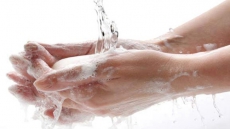A team of Indian-American researchers has found that not just what you eat but when you do so is equally important in order to protect your heart from early ageing.
The results from experiments over fruit flies can one day translate into cardiac and obesity-related health benefits for humans, they noted.
"Time-restricted feeding would not require people to drastically change their lifestyles but just the times of day they eat," said Girish Melkani, biologist at the San Diego State University.
The benefits of a time-restricted diet were not exclusive to young flies.
When the researchers introduced these dietary time restrictions to older flies, their hearts became healthier too.
"Even if you introduce time-restricted feeding very late, you still have some benefit," Melkani pointed out.
Melkani, along with Satchidananda Panda, circadian rhythms expert at the Salk Institute for Biological Studies and Shubhroz Gill from the Broad Institute in Boston found that by limiting the time span during which fruit flies could eat, they could prevent aging- and diet-related heart problems.
Previous research has found that people who tend to eat later in the day and into the night have a higher chance of developing heart disease than people who cut off their food consumption earlier.
"So what is happening when people eat late? They are not changing their diet just the time," Melkani added.
In their experiments, one group of two-week-old fruit flies was given a standard diet of cornmeal and allowed to feed all day long.
Another group was allowed access to the food for only 12 hours a day.
After three weeks, the results were clear.
Flies on the 12-hour time-restricted feeding schedule slept better, did not gain as much weight and had far healthier hearts than their "eat anytime" counterparts, even though they ate similar amounts of food.
The take-home message is to cut down on the late-night snacks, the trio concluded.
The study was published in the journal Science.





